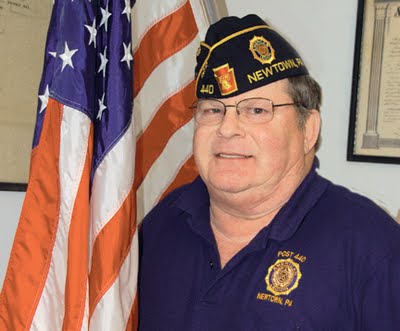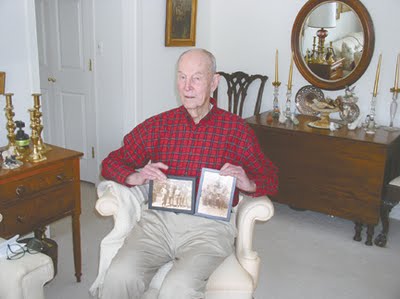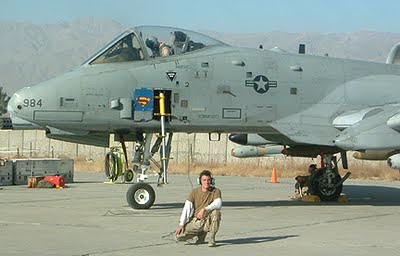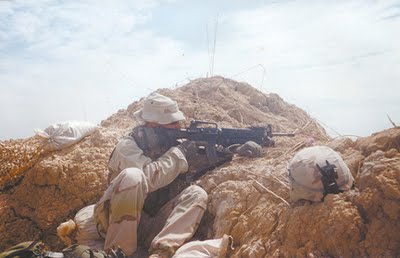James J. Anderson
Patrolling the Mediterranean aboard the USS Lowery.
By Jeff Werner, BucksLocalNews.com

Veteran James J. Anderson is about as patriotic as they come. He loves his country. He’s proud of his flag. He chokes up when he talks about freedom.
And when a lot of guys were fleeing to Canada to avoid the draft during the Vietnam War, he was looking for a way into the combat zone.
The Philadelphia native volunteered for service in Vietnam not once, but numerous times. Each time, though, the answer from the U.S. Navy came back “no.” It was a huge disappointment for Anderson, who was eager to see combat at the young age of 17 back in 1963.
“I was a hawk and you can’t be a hawk if you’re not willing to go,” he said. “But I also felt I owed something to this country. I’m a flag-waver. I always was. I felt like I owed it to the guys who went before me.
“To me, it was unbelievable that they had the draft; that they had to grab somebody to serve their country. I grew up with all the war comic books, all the war movies. My father was in the war and my grandfather was in the war before that. I had a great-great-grandfather in the Civil War.”
His father, James J. Anderson, served on the light cruiser Phoenix in the South Pacific. His grandfather, Frank McAdams, was in the Army Air Service in France during World War I. And his great-great-grandfather, Michael Denig, served with the 3rd Pennsylvania Volunteer Calvary in the biggest battles of the Civil War, including Antietam and Gettysburg.
“I wanted to be like my father. He was in the Navy and I wanted to be in the Navy. He was on a cruiser during World War II. I wanted to do what he did,” he said.
Born on Sept. 9, 1946, Anderson grew up in the Kensington section of Philadelphia. He spent his early childhood attending St. Veronica’s Grade School in Tioga and Cardinal Dougherty High School, graduating in June 1964.
He joined the service and started his senior year of high school on his 17th birthday in 1963. He would have joined earlier, but his father insisted that he first finish high school.
“During the Cuban Missile Crisis, when I went in to enlist, they said my father would have to sign. So I went home and I said to my father, ‘I’m joining the Navy.’ He laughed at me and said, ‘When you’re out of high school.’ So I said to him, ‘When I hit 17 I want you to sign my papers.’”
He was true to his word. When he turned 17, he returned to the recruiting office with signed papers from his father and volunteered his service.
He spent his senior year of high school serving in the reserves, going to sea one weekend a month learning how to be a sailor. He served aboard the destroyer escort, Joseph Douglas Blackwood.
He officially joined the service following graduation from high school and requested assignment in the South Pacific where his father had served. “If it was good enough for my father, it was good enough for me. There was also action going on there.”
He never saw the South Pacific as a serviceman and he never made it to Vietnam despite his numerous attempts.
In Oct. 1964, he was assigned to the 177-man crew of the U.S. destroyer Lowrey. He spent several years aboard her in the Mediterranean Sea, off the coasts of France, Turkey, North Africa, Spain, Greece, Italy and Lebanon.
His served as a deck aid before being named personnel man. He was the guy who kept the ship’s records, including transfer orders and discharges.
He also worked as a powderman and projectileman for the gun mount. “We fired every other day while we were at sea,” said Anderson. “We always had to be ready. And when we weren’t firing, we were replenishing ammunition.”
The destroyer’s mission was to provide protection and support for American carriers and cruisers.
“We were a killing machine from bow to stern,” said Anderson. “We had 5-inch ammunition. We had hedge hogs. We had torpedoes, aviation fuel and two Destroyer Anti-Submarine Helos (DASH). If anyone went after one of our carriers or cruisers it was our job to intercept the torpedo. We were there showing the flag and keeping the peace,” he said.
While Anderson never saw combat aboard the destroyer, there were a few harrowing moments.
“We were refueling off an oiler and the seas were real choppy. A seaman from the oiler fell overboard. Our swimmer went over to get him with a line tied around him. He brought him along side the ship. The ship went up in the air, the line parted and they both went under the ship. They got the kid but our guy didn’t make it. He was a nice guy. It’s always the nice guys.”
Ironically, while Anderson never made it to Vietnam, his ship did. Three years after he left the destroyer, it was sent into the war zone.
He completed his service in 1969 and took advantage of the GI Bill, earning a degree in industrial relations from La Salle University. He fell in love and married his sweetheart, Maureen. The couple raised three children, Jim, Karen and Kate.
He worked at various companies through the years before finding a job as an industrial engineering supervisor for SPD Technologies.
He worked for the Philadelphia manufacturing company for 26 years before being forced to retire at the age of 61.
“Early retirement worked out well for me because my daughter had triplets,” said the proud Middletown Township grandfather. He’s now enjoying retirement with Madison, Abigail and Colten, and spending time with his wife of 39 years.
He also devotes time to the Morrell Smith Post No. 440 of the American Legion in Newtown where he serves as adjutant.
“These guys are all salt of the earth. You can find fault with none of them. Yeah, sometimes they’re a pain. But they’re good men with good hearts who did so much for our country,” he said.
To his fellow veterans and to his family, he’s known for his patriotism and his deep and abiding love this country.
“The American flag is everything,” he said. “It’s the Alamo, Pearl Harbor, Gettysburg. It’s all those who went before to preserve freedom. You’ve got to feel it here,” he says, placing his hand over his heart.
By Jeff Werner, BucksLocalNews.com

Veteran James J. Anderson is about as patriotic as they come. He loves his country. He’s proud of his flag. He chokes up when he talks about freedom.
And when a lot of guys were fleeing to Canada to avoid the draft during the Vietnam War, he was looking for a way into the combat zone.
The Philadelphia native volunteered for service in Vietnam not once, but numerous times. Each time, though, the answer from the U.S. Navy came back “no.” It was a huge disappointment for Anderson, who was eager to see combat at the young age of 17 back in 1963.
“I was a hawk and you can’t be a hawk if you’re not willing to go,” he said. “But I also felt I owed something to this country. I’m a flag-waver. I always was. I felt like I owed it to the guys who went before me.
“To me, it was unbelievable that they had the draft; that they had to grab somebody to serve their country. I grew up with all the war comic books, all the war movies. My father was in the war and my grandfather was in the war before that. I had a great-great-grandfather in the Civil War.”
His father, James J. Anderson, served on the light cruiser Phoenix in the South Pacific. His grandfather, Frank McAdams, was in the Army Air Service in France during World War I. And his great-great-grandfather, Michael Denig, served with the 3rd Pennsylvania Volunteer Calvary in the biggest battles of the Civil War, including Antietam and Gettysburg.
“I wanted to be like my father. He was in the Navy and I wanted to be in the Navy. He was on a cruiser during World War II. I wanted to do what he did,” he said.
Born on Sept. 9, 1946, Anderson grew up in the Kensington section of Philadelphia. He spent his early childhood attending St. Veronica’s Grade School in Tioga and Cardinal Dougherty High School, graduating in June 1964.
He joined the service and started his senior year of high school on his 17th birthday in 1963. He would have joined earlier, but his father insisted that he first finish high school.
“During the Cuban Missile Crisis, when I went in to enlist, they said my father would have to sign. So I went home and I said to my father, ‘I’m joining the Navy.’ He laughed at me and said, ‘When you’re out of high school.’ So I said to him, ‘When I hit 17 I want you to sign my papers.’”
He was true to his word. When he turned 17, he returned to the recruiting office with signed papers from his father and volunteered his service.
He spent his senior year of high school serving in the reserves, going to sea one weekend a month learning how to be a sailor. He served aboard the destroyer escort, Joseph Douglas Blackwood.
He officially joined the service following graduation from high school and requested assignment in the South Pacific where his father had served. “If it was good enough for my father, it was good enough for me. There was also action going on there.”
He never saw the South Pacific as a serviceman and he never made it to Vietnam despite his numerous attempts.
In Oct. 1964, he was assigned to the 177-man crew of the U.S. destroyer Lowrey. He spent several years aboard her in the Mediterranean Sea, off the coasts of France, Turkey, North Africa, Spain, Greece, Italy and Lebanon.
His served as a deck aid before being named personnel man. He was the guy who kept the ship’s records, including transfer orders and discharges.
He also worked as a powderman and projectileman for the gun mount. “We fired every other day while we were at sea,” said Anderson. “We always had to be ready. And when we weren’t firing, we were replenishing ammunition.”
The destroyer’s mission was to provide protection and support for American carriers and cruisers.
“We were a killing machine from bow to stern,” said Anderson. “We had 5-inch ammunition. We had hedge hogs. We had torpedoes, aviation fuel and two Destroyer Anti-Submarine Helos (DASH). If anyone went after one of our carriers or cruisers it was our job to intercept the torpedo. We were there showing the flag and keeping the peace,” he said.
While Anderson never saw combat aboard the destroyer, there were a few harrowing moments.
“We were refueling off an oiler and the seas were real choppy. A seaman from the oiler fell overboard. Our swimmer went over to get him with a line tied around him. He brought him along side the ship. The ship went up in the air, the line parted and they both went under the ship. They got the kid but our guy didn’t make it. He was a nice guy. It’s always the nice guys.”
Ironically, while Anderson never made it to Vietnam, his ship did. Three years after he left the destroyer, it was sent into the war zone.
He completed his service in 1969 and took advantage of the GI Bill, earning a degree in industrial relations from La Salle University. He fell in love and married his sweetheart, Maureen. The couple raised three children, Jim, Karen and Kate.
He worked at various companies through the years before finding a job as an industrial engineering supervisor for SPD Technologies.
He worked for the Philadelphia manufacturing company for 26 years before being forced to retire at the age of 61.
“Early retirement worked out well for me because my daughter had triplets,” said the proud Middletown Township grandfather. He’s now enjoying retirement with Madison, Abigail and Colten, and spending time with his wife of 39 years.
He also devotes time to the Morrell Smith Post No. 440 of the American Legion in Newtown where he serves as adjutant.
“These guys are all salt of the earth. You can find fault with none of them. Yeah, sometimes they’re a pain. But they’re good men with good hearts who did so much for our country,” he said.
To his fellow veterans and to his family, he’s known for his patriotism and his deep and abiding love this country.
“The American flag is everything,” he said. “It’s the Alamo, Pearl Harbor, Gettysburg. It’s all those who went before to preserve freedom. You’ve got to feel it here,” he says, placing his hand over his heart.
 RSS Feeds
RSS Feeds






